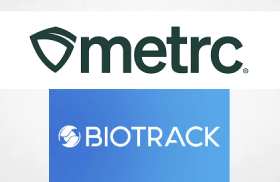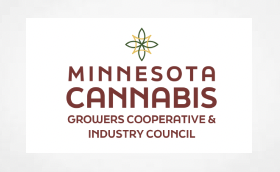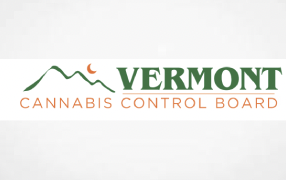With the growing number of states legalizing marijuana for medical and recreational use, many brands have emerged for cannabis and related goods and services. The change in legal status is not just happening on a state level, but federally as well. A major change occurred in December with passage of a federal law legalizing hemp and a wide range of products made from hemp. With expanding federal legalization, what lies ahead is a war of brands. It has already started. Many companies are already filing federal and state trademark registrations. This article provides insight into the best practices for protecting trademark rights during this period of transition in the law.
In the US, there are three ways a trademark can be protected. There are rights established under the common law in every state to protect a trademark adopted and used to identify the source of a product. The foundation of the common law is that the use must be lawful use. Courts protect common law trademark rights. Building on the common law, each state has a trademark registration system providing state registration rights which can help protect marks within that state. Lastly, federal trademark registration rights are nationwide rights obtainable based on lawful commercial use in interstate commerce.
The filing date of a federally registered trademark is the nationwide priority date, which means that once the mark is registered, the entire country is on constructive notice of nationwide rights as of this date. Securing the earliest possible filing date for lawful goods is advantageous to avoid an application from being rejected based on likelihood of confusion with another mark, and is a legal obstacle to third parties seeking to register a cannabis-related mark after the filing date.
In view of the large demand for registration of trademarks for cannabis-related goods and services, on May 2, 2019, the United States Patent and Trademark Office (“USPTO”) issued an Examination Guide setting forth the standards by which it will be examining applications directed to such marks. It is clear now that federal trademark registration is obtainable for cannabis-related goods or services derived from hemp, i.e., if they contain no more than 0.3% THC. The USPTO is now applying this standard to pending and new applications, making it clear federal registration is obtainable for marks if the goods/services relate to cannabis having no more than 0.3% THC. For marks used for cannabis products above 0.3% THC, state trademark registration rights should be pursued in states where cannabis is legal. Another option is to file federal trademark applications for secondary products and services, e.g., clothing. The goal now in the cannabis field is to establish federal and state trademark registration rights.
Overview of the Guidelines
Initially, the guidelines make clear that use of a mark in commerce must be lawful under federal law to be the basis for federal Trademark registration. Unlike the laws of many states, cannabis, or marijuana, defined as “all parts of the plant Cannabis sativa L., whether growing or not; the seeds thereof; the resin extracted from any part of such plant; and every compound, manufacture, salt, derivative, mixture, or preparation of such plant, its seeds or resin” remains illegal federally under the Controlled Substances Act (CSA). This was even true for cannabidiol (CBD), an increasingly available chemical constituent of cannabis encompassed within the CSA’s definition of marijuana. Therefore, the USPTO traditionally refused registration for applications identifying goods encompassing any part of cannabis, including CBDs.
However, the Farm Bill of December 20, 2018 removed “hemp”, defined as any part of the plant Cannabis sativa L. having not more than 0.3% THC (the hallucinogenic component of cannabis) from the CSA’s definition of marijuana. So, cannabis plants and derivatives such as CBDs containing no more than 0.3% THC are no longer controlled substances under the CSA.
Accordingly, the Farm Bill potentially removes the CSA as a ground for refusal of registration for trademark applications directed to CBDs. If an applicant’s goods are derived from “hemp”, the guidelines make clear that the USPTO may grant federal trademark registrations if the identification of goods expressly state that they contain less than 0.3% THC.
Pending Trademark Applications filed before December 20, 2018
Given the uncertainty related to the Farm Bill’s impact on federal trademark protection, there is currently a significant backlog of pending trademark applications for cannabis-related goods. The USPTO guidelines will help resolve this backlog.
Specifically, for pending applications filed before December 20, 2018, the USPTO will permit an applicant to either: (1) amend the filing date, filing basis, and scope of goods of the application; or (2) abandon the application and re-file. Accordingly, in order to proceed to registration, an applicant must amend the filing date of the application to December 20, 2018 to comply with the Farm Bill. Furthermore, if an application was filed with a “use in commerce” basis, it will be necessary to amend the filing basis to “intent-to-use.” The applicant will also be required to narrow the identification of goods to specify that the CBD or cannabis products contain less than 0.3% THC. The Examining Attorney will then conduct a new search of the USPTO records for conflicting marks based on the later application filing date.
Given the significant number of pending marks, and the potential flood of new trademark applications, it is our strong recommendation for applicants to amend the filing date, filing basis, and scope of goods (if applicable), rather than abandoning the pending mark and re-filing. The constructive first use date of December 20, 2018 could be very important in establishing priority over third parties.
Pending Trademark Applications filed on or after December 20, 2018
For pending applications filed on or after December 20, 2018, or newly filed applications, the USPTO Examining Attorney will simply require applicants to narrow the scope of goods to expressly state the goods are derived from hemp and contain less than 0.3% THC.
Not all Goods for CBD or Hemp-Derived Products are Lawful following 2018 Farm Bill
The USPTO guidelines do not permit federal registration of all hemp-derived goods. Specifically, any CBD-containing or hemp-derived food or dietary supplement products may still be considered illegal if they undergo clinical investigation without FDA approval. Therefore, registration of federal trademarks for foods, beverages, dietary supplements, or pet treats containing CBD will still be refused by the USPTO as unlawful, even if derived from hemp.
Best Practices Moving Forward
Obtaining federal trademark registration rights provides a registrant with nationwide rights. This is a big deal, especially in such a burgeoning industry. Hemp-related pending applications should be handled as described. Applications for marks for related goods/services and for cannabis with more than 0.3% THC should be filed in states where lawful, and federally to the extent there is lawful commercial use of the mark for goods/ services. A search of federal, state and common law uses is recommended for marks not yet adopted and in use. This is one industry where an effective trademark registration strategy can make a major difference in the value of a brand.
Joshua B. Goldberg is the Partner-in-Charge of the Chemical, Pharmaceutical and Biotechnology Department of Nath, Goldberg & Meyer and works extensively with the firm’s Trademark department. Mr. Goldberg’s practice involves portfolio management and analysis, including the preparation, prosecution, and acquisition of U.S. and foreign patents across a wide range of technology areas. Mr. Goldberg has had a recent focus on patent and trademark issues related to cannabis products and has helped navigate clients through the options available for protecting the same.
NATH, GOLDBERG & MEYER
112 S. West Street, Alexandria, VA 22314
Tel: 703-548-6284 Fax: 703-683-8396
















